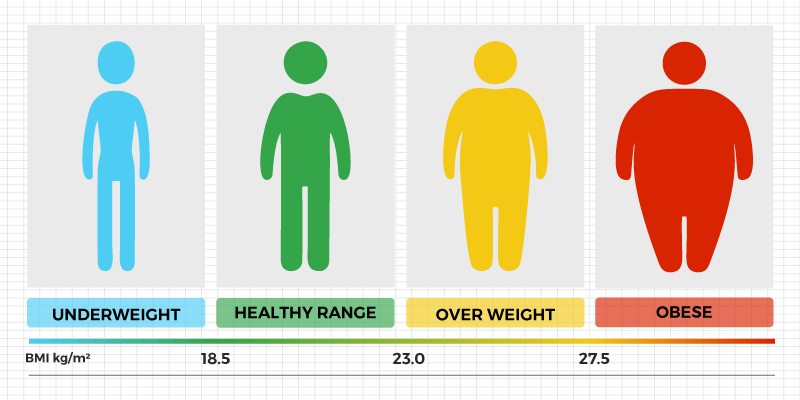Many people want to know the answer to this question: How much should I weigh? However, there is not one ideal healthy weight for each person, because a number of different factors play a role.
These include age, muscle-fat ratio, height, sex, and body fat distribution, or body shape.
Having excess weight can affect a person’s risk of developing a number of health conditions, including obesity, type 2 diabetes, high blood pressure, and cardiovascular problems.
Not everyone who carries extra weight develops health problems. However, researchers believe that while these extra pounds might not currently impact a person’ s health, a lack of management could lead to problems in the future.
So How Can You Calculating Ideal Weight?
But before i jump you into the most complex theories and ways to calculate your BMI I really want you refer the most simplest and accurate chart by nhs.uk.

Calculating ideal weight for height is one way of determining whether one is over or underweight. This method also takes into account the frame size of a person. So for example, frame might be calculated by measuring the distance between the sides of the right elbow when the arm is extended in front of the chest, and the elbow bends so the forearm is parallel to the body.
A medium frame measurement of this type would be 2.75 to 3 inches (6.98-7.62 cm) in a man that is 68 to 71 inches (1.72 -1.8m) tall. In a woman that is 64-67 inches (1.62-1.7m) tall, medium frame measurement of the elbow would be between 2.25 to 2.5 inches (5.71-6.35cm).
The ideal weight of a medium frame woman measuring 64-67 inches is between 124-147 pounds. This leads to a lot of variance in what would be considered an ideal weight. Some people simply state that for women, 5 pounds (2.26 kg) over 100 pounds (45.39kg) should be accorded for every inch over 5 feet (1.52 m). So a woman who is 5’2”(1.57m) has an ideal weight of 110 pounds (49.89 kg).
In this model, men are allowed one to two pounds more (.45-.90kg) per inch than women, given that their frames are generally larger. This is a fairly good way to get a quick estimate of ideal weight for height.
People who exercise and are physically fit tend to have more lean muscle mass and lower levels of fat tissue than people who are not physically fit. Muscle tissue weighs more, and this does not necessarily affect the actual frame of the person. In order to get an ideal weight for height, one may need to do a body fat composition test to more accurately measure the good tissue “muscle” versus the “bad” fat tissue.
Fit people tend to weigh more than the simple height/weight comparison allows, particularly if they are muscle-bound. So it would not be unusual for our woman above who is 5’2” to weigh more than 110 pounds and still be at an ideal weight. Individual variations are going to affect ideal weight figures for each person.
A good personal trainer, nutritionist, or doctor can help one analyze ideal weight from several complex tables, rather than from simple weight to height ratio. The results may suggest weight loss is in order, or provide the person wishing to lose weight with a pleasant surprise about their current weight.



